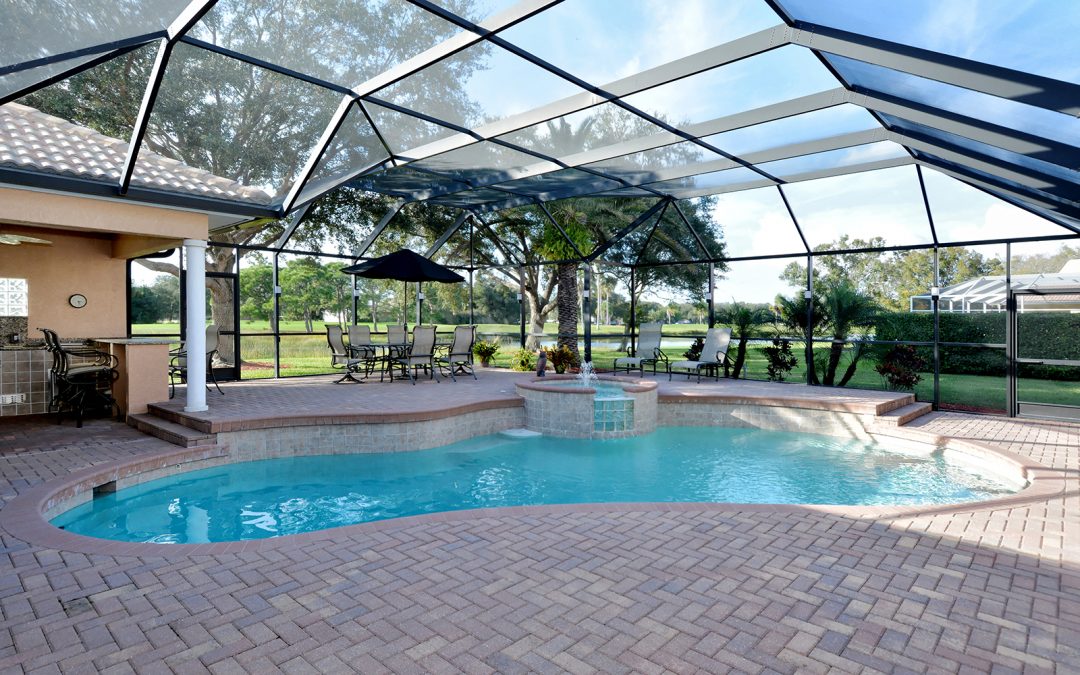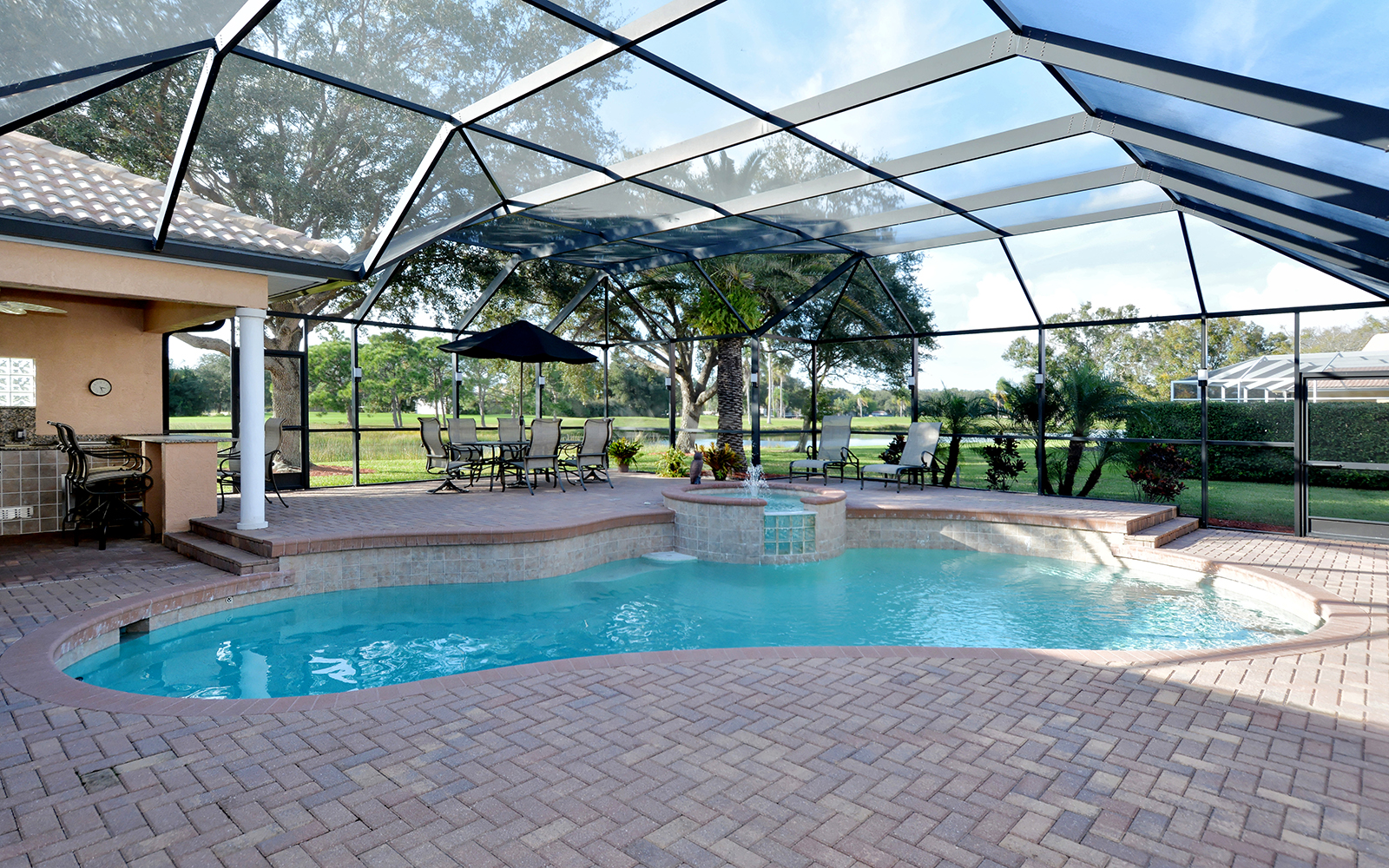At West Coast Design Build Florida, we don’t build swimming pools. But when we design a fabulous and unique outdoor living space, we often work around a beautiful swimming pool. After all, many factors go into creating your ideal living space – and here in Florida, it’s no wonder one of the most popular backyard additions is a swimming pool. Pools come in an almost endless variety of sizes, shapes and styles depending on your preferences and design concept. Another choice Sarasota residents have when designing a pool is whether to fill it with fresh or saltwater. Today we will discuss adding a saltwater pool to your dream outdoor space layout.
Understand the Difference
Aside from the obvious difference, saltwater pools differ from freshwater pools in the way that they get sanitized. Most people are familiar with the chlorine tablets used in traditional freshwater pools. Checking the pH and other chemical levels of a freshwater pool is crucial to keeping everyone safe while swimming in it, as algae and other bad microbes can grow in unsanitized water. In saltwater pools, they rely on a salt generator–a device that emits an electrical signal and causes the salt to naturally convert into chlorine. This way, the homeowner doesn’t need to add extra chemicals to the water.
How Salty is a Saltwater Pool?
The concept of a saltwater pool may be unappealing to some people–after all, a swim in the salty ocean leaves your hair crunchy and your skin feeling dry and sticky. Saltwater swimming pools have a much lower concentration than the ocean though. They are maintained at around 3,000 ppm of salt, which is one tenth of the ocean’s concentration. This amount is enough to keep the water naturally sanitized and it will definitely taste salty; however, you won’t be left feeling as if you just took a dip in the sea.
The Big Benefits
There are pros and cons to saltwater pools as opposed to freshwater. You may like a saltwater pool if:
- You have sensitive skin. The chemicals used in traditional pools hurt your throat if water is accidentally swallowed, and can irritate sensitive skin if not washed off. The natural salt chlorination in saltwater pools is significantly gentler on the skin. It also is less likely to cause damage to bathing suits and swim accessories.
- You prefer easier maintenance. Saltwater pools require fewer additional chemicals, so you end up spending less money over the course of the pool’s lifetime than you do with traditional pools. While occasional testing of the chemical levels is still needed, you don’t need to devote nearly as much time to a saltwater pool. The natural conversion of salt to chlorine also means it’s easier to maintain a stable level of chlorination than in traditional pools.
The Cons
You may choose to go with a traditional pool instead if:
- You’re on a budget. While they don’t require additional chemicals, saltwater pools have a complex chlorination system that costs more than a traditional pool to set up. Saltwater pools will save you money over time, but you need to be able to pay the up-front costs to build one.
- You don’t pay attention to the materials you use. Salt can be gentler on your skin than harsh sanitizing chemicals, but it can be damaging when pool parts and the surrounding areas are exposed to it long-term. You can avoid this by consciously choosing salt-friendly hardscaping and pool accessories.
- You’re used to a freshwater pool. The science of maintaining a saltwater pool is much different than a freshwater pool. If you’ve been caring for traditional pools for years, you may simply be more comfortable sticking with that system.
A swimming pool is just one element of a beautiful backyard design. Are you looking to add an outdoor kitchen to add to the al fresco fun, be sure to contact West Coast Design Build Florida. We not only install beautiful kitchens and bathrooms, but we can help to design your Florida-inspired outdoor space.



Recent Comments